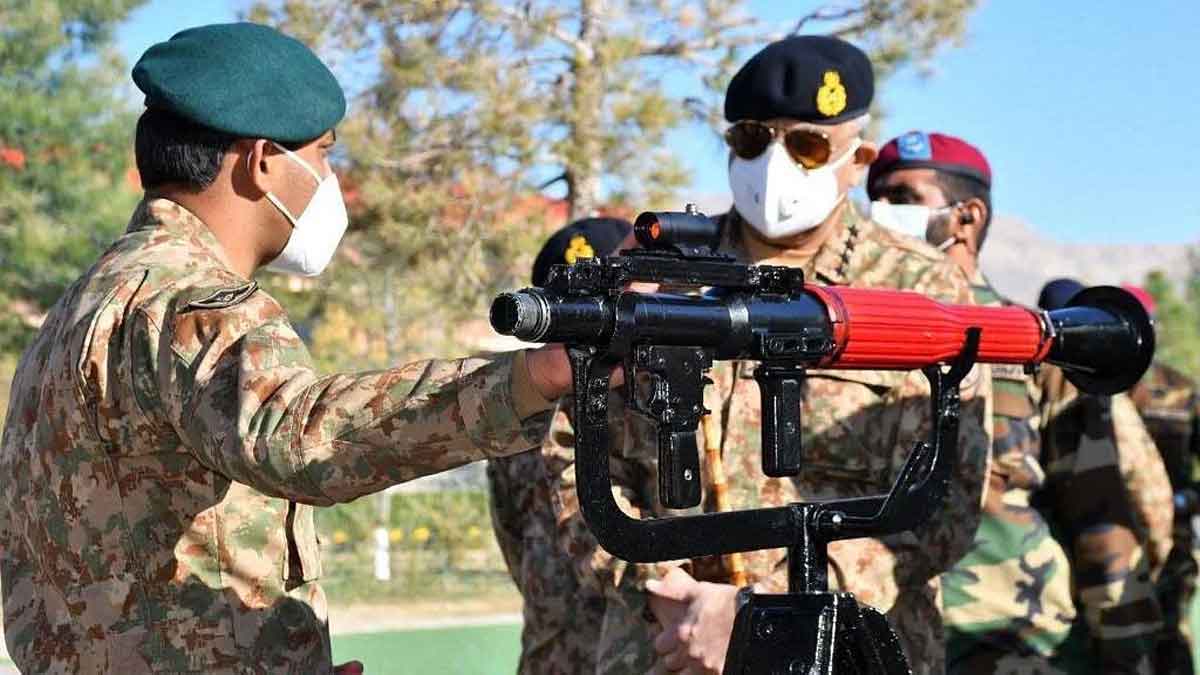In order to satisfy a key requirement of the International Monetary Fund (IMF) about establishing primary budget surplus in the next fiscal year, Pakistan has reduced the armed forces development plan by Rs 72 billion or one-fifth of the amount provided on June 10.
One of the key requirements of the IMF for the resumption of the bailout package is having a primary budget surplus of Rs 153 billion, or 0.2 percent of the national output. Now, Finance Minister Miftah Ismail is hoping to get an agreement on the staff level by the end of this week.
The initial budget, which the government presented to the National Assembly on June 10, included Rs 363 billion in funding for the initiative to develop the armed forces. On the other hand, the revised budget, which the Ministry of Finance made public after receiving National Assembly approval, shows that the budget provision has been cut to Rs 291 billion.
The armed forces development programme has been reduced by Rs 72 billion, or around 20%. The funding is additional to the standard defence budget. Due to financial restrictions and IMF-imposed restraints, the armed forces development programme has been cut for the second time in as many years.
Read more: IMF tells Pakistan to lower budget deficit down to 4.9% of the GDP
The previous administration had set aside Rs 340 billion for this purpose during the previous fiscal year, however the budget books show that only Rs 270 billion was actually spent.
Regarding this, the Ministry of Finance stated that the military forces development programme needed to be scaled back in order to lower total spending levels and put the country in a position to meet the IMF’s primary budget surplus target.
On the strength of provincial cash surpluses of Rs 750 billion, the government has set the primary budget surplus target at Rs 153 billion, or 0.2% of GDP. However, the provincial budgets do not account for the savings of Rs 750 billion, and the IMF requested that the government obtain the support of the provinces through memoranda of understanding (MoUs).
More Conditions to Meet
The government increased the amount of the budget by Rs 9.6 trillion from what was initially suggested on June 10 in order to appease the IMF. The declared armed forces development budget has now been boosted to Rs 1.567 trillion, a 14.1 percent or Rs 194 billion increase over the initial allotment for the previous year. The defence budget has increased by an additional Rs 41 billion since June 10.
From Rs 530 billion three weeks ago, the cost of civilian and military pensions has climbed to Rs 609 billion. Notifying customers of the Rs 3.51 per unit rise in energy pricing that will take effect on July 1 is a crucial requirement that is currently unmet.
The government must also inform the IMF of the cabinet’s decision to impose an additional Rs 10 per litre fuel tax starting on August 1.
Ismail also said that he had obtained the PM’s consent for all critical steps. Another need made forth by the IMF is that Pakistan revise its anti-corruption laws. Following recent changes to the accountability law that alarmed the international lender, the condition was imposed.
Ismail claimed that after consulting with international specialists, the IMF requested a diagnostic of the anti-corruption laws.





















